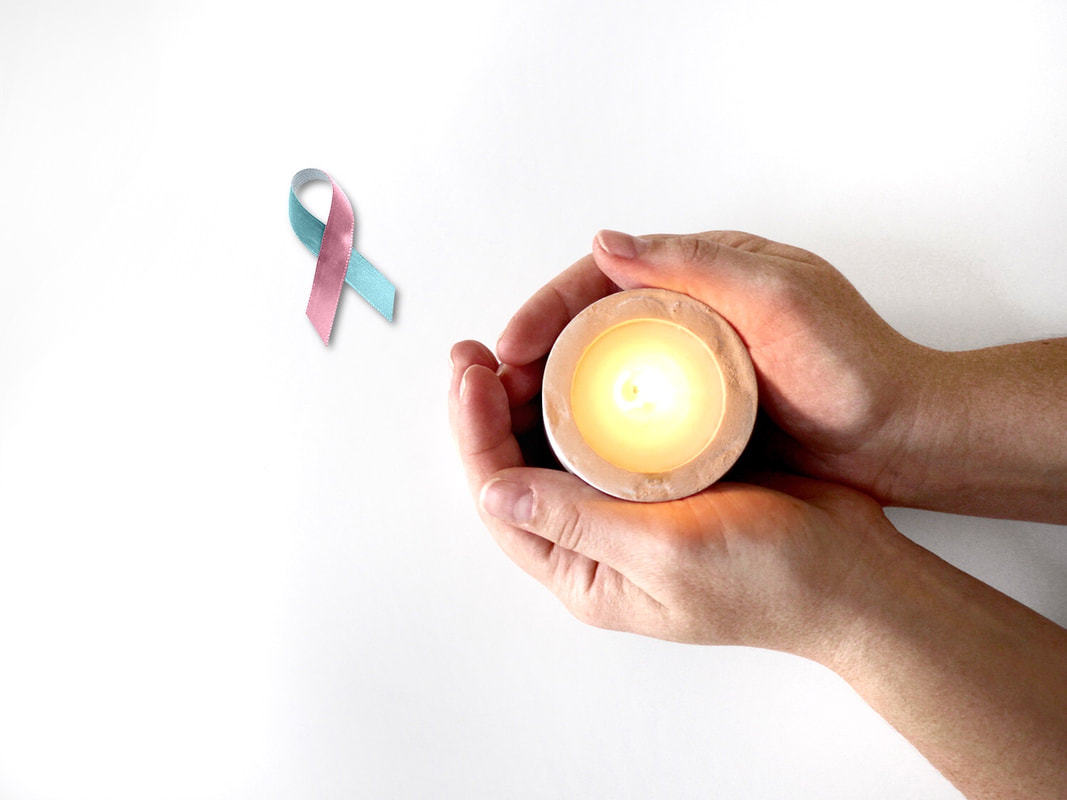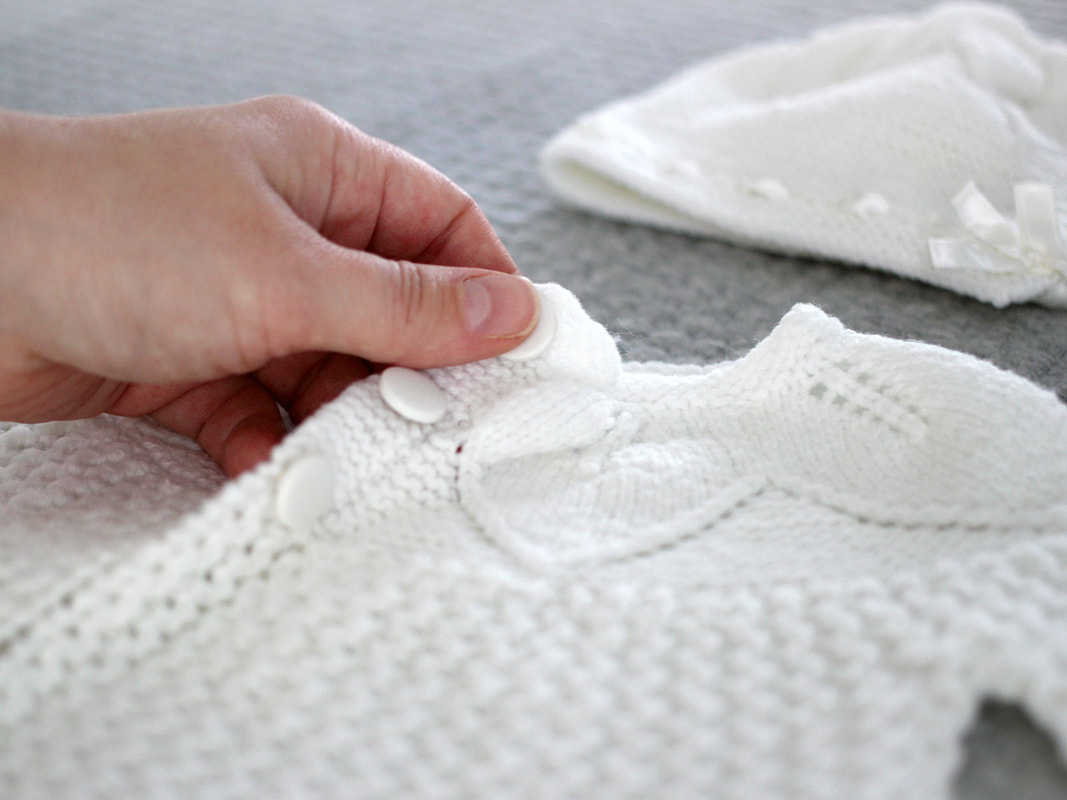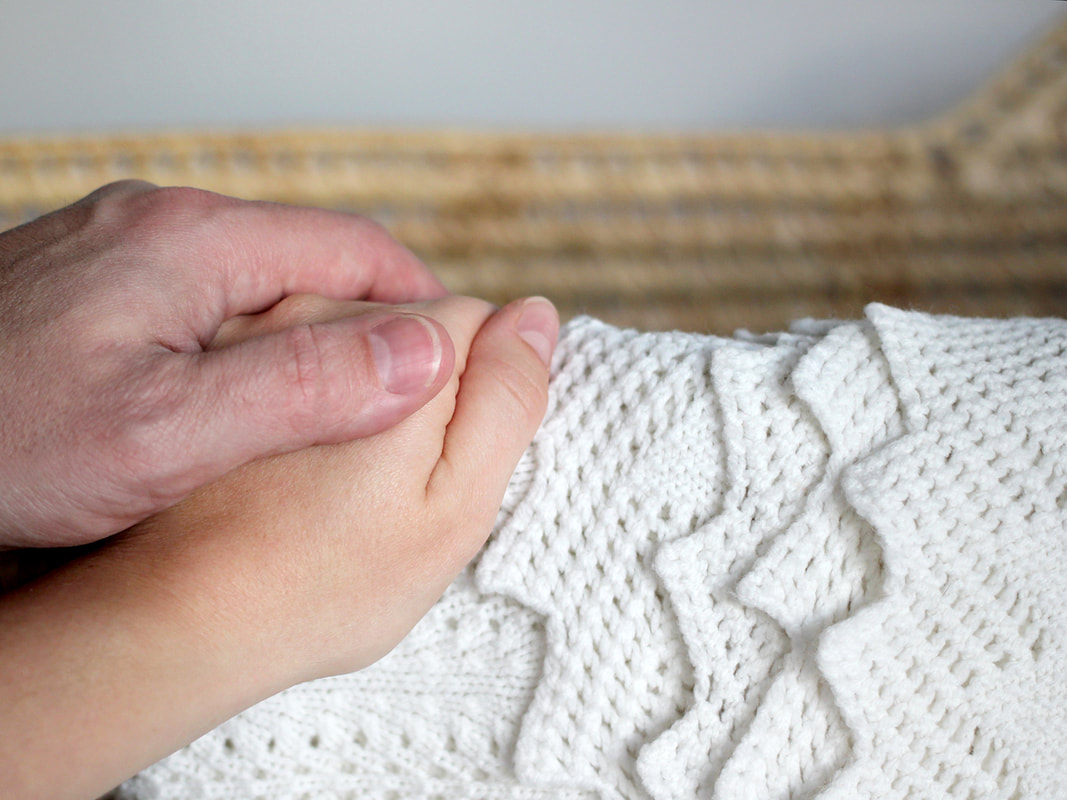|
Learning you are pregnant is a life-changing moment. Naturally some pregnancies are unplanned while others are long awaited, but whether the big news comes as a surprise or a sweet relief, a welcome pregnancy is quickly followed by excitement and anticipation. It isn’t long before Mama-to-be is picking names, stockpiling receiving blankets, and dreaming of the day she holds Baby in her arms. But the truth is, not every Mama gets to meet her Little One. Miscarriage—loss of a baby in utero—is the most common complication of pregnancy. Among women who know they are pregnant, 15-25% will end in miscarriage. Although early pregnancy loss is very common and often cannot be prevented, there is a heavy stigma surrounding it, which can cause women to feel guilt, shame, and loneliness on top of their loss. Last month the special day of Pregnancy and Infant Loss Remembrance was on October 15th. To honour this we decided to sit down and speak with Jessica Shalchian, a DONA trained Doula, who has endured two miscarriages in less than one year. Like so many Mamas who have lost an unborn baby, she was faced with sadness and confusion, while wondering where to turn for support. Today, with Jessica’s help, we are sharing 5 Truths About Loss In Pregnancy, and why any woman who has loved & lost a baby will always be a Mama. 1. You ARE Still a Mama Yoga Mamas: After a miscarriage, it’s common for women to feel a loss of their maternal identity. In what ways did you care for your baby in utero that made you realize you ARE still a Mama today? Jessica Shalchian: From the moment I knew I was pregnant, I did whatever I could to protect that little human. Even something as simple as holding my hand over top of my tummy made me feel like I was holding that baby safe. I would imagine my body hugging them. I tried very hard to be mindful of what I ate, and the physical activity I did. I was tired all the time yet felt as though it was okay because it meant my body was working hard on someone worthwhile. At the end of the day, I carried this baby every second of their life—all that love and sacrifice still matters to me. 2. It’s Ok to not be Ok YM: Some women feel a social pressure to forget the baby they’ve lost, move on, and try to have other children. How did you respect your feelings in the midst of “normal life”? JS: When the doctor told me I had lost my baby for the second time, I felt helpless. I wanted to understand why this was happening to me, but after hours of self-guided Web MD research I didn’t have any conclusive answers. I recommend talking to your health care professional about the first steps you can take, as well as what’s within their scope to help you with. If they aren’t able to investigate further, ask if they can put you in contact with someone who can. It’s normal to want answers, and that has been a big part of my healing journey. It’s also important to be kind to yourself and to take the time you need to process your feelings. With my second miscarriage I hit a breaking point because I didn’t take time to grieve. I was resentful of going back to my normal life because it was as though my baby had never existed. For me, having a support person in my workplace helped immensely. Opening up to someone I trusted at work meant I didn’t always have to “put on a face” or pretend the pain wasn’t there. 3. Your Body Needs Love and Rest YM: The physical experience of miscarriage differs between women, and can even be different for the same woman experiencing multiple miscarriages. How did you care for your body during your loss? JS: I think it’s important to take some time off of work if your circumstances allow. Similar to a period, your uterus contracts during miscarriage, which left me feeling exhausted and suffering from severe cramps. You may want to ask your doctor about pain relief—It’s okay to not want to feel the physical pain…the emotional pain of losing your baby is hard enough to endure. I tried to respect and trust my body during the miscarriage process. But, if something didn’t seem “right” to me, I would see my doctor or go the emergency room. Part of my approach to self-care was listening to the options given to me by my healthcare providers, and then choosing which paths were most comfortable for me. 4. Your Partner Shares this Journey YM: After losing a pregnancy, a mother’s values, beliefs, and spirituality can be challenged. How did you share this journey with your partner? JS: Although it’s awful that we as women have to bare the physical pain of losing a pregnancy, we aren’t alone for the emotional journey. Your partner may also be feeling a huge sense of loss. Sharing these feelings will help you understand one another’s perspective, while helping you connect rather than drift apart. I often asked my husband how he was doing, and we would talk about what we could do as a couple to grieve and mend. We also had to talk about where our intimate relationship stood. Not only was I not in the mood for love, I didn’t even want to talk about getting pregnant again. It was important to me that my husband knew this and gave me some time. Be open and communicate with your partner so neither of you are left wondering. 5. You are not Alone YM: Enduring a miscarriage can feel so lonely. Where did you find support? JS: You are definitely not alone, and I think most women don’t realize how often miscarriages happen until it happens to them. Just knowing that there were other people who could understand how I was feeling, because they were either going through a miscarriage or had experienced one in the past, helped me feel supported. Definitely connect with other parents experiencing loss to talk, grieve, and get mad at the universe! It’s okay to feel all the emotions and to get the support you need. A few women I connected with became real Mama Bears for me, which was everything. Ask your doctor or the hospital where you receive treatment to recommend a place to seek community and counsel. Sunnybrook Hospital in Toronto offers a supportive community called The Pregnancy and Infant Loss Network, filled with resources and support. October 15th was Pregnancy and Infant Loss Remembrance Day. People who would like to observe this day next year are asked to light a candle at 7pm in their own time zone, and to keep it lit for one hour. This creates a wave of light around the world for a whole 24 hours, sending love to lost babies and spreading hope. Mamas who have lost a pregnancy can feel comforted knowing there is a day dedicated to remembering their Little One, and that other parents the world over join them.
You can help to break the stigma surrounding pregnancy loss by wearing a pink and blue ribbon in support of mothers experiencing miscarriage. Mamas who feel ready to share their story can wear a ribbon to encourage positive and supportive conversation within their community. A very special ‘thank you’ to Jessica for her strength and honesty in talking to us about her miscarriages. All of us at Toronto Yoga Mamas send you love and light, and wish you all the best on your journey to find healing. Comments are closed.
|
Categories
All
Archives
July 2024
|
-
Wellness Services
- Wellness Concierge
- Abdominal Massage
- Acupuncture
- Cosmetic Acupuncture
- Cesarean Scar Release Therapy
- Chinese Herbal Medicine
- Chiropractic Care
- Counselling >
- Craniosacral Therapy
- Online EFT Tapping
- Fascial Stretch Therapy
- Home Visits
- Online Holistic Nutrition
- Gua Sha Glow Facial
- Introduction to Solids
- Infant & Kids Massage
- Infant Sleep Consulting
- Kinesiology
- Kinesio Taping
- Lactation Consulting
- Light Therapy >
- Lymphatic Drainage Massage
- Massage Therapy
- Naturopathic Medicine
- Osteopathy
- Pelvic Floor Physiotherapy
- Physiotherapy
- Pediatric Physiotherapy
- Online Speech Language Therapy
- Ultrasound For Blocked Ducts
- Vitamin Injections
- FITNESS
- Doula Care
- WORKSHOPS & EVENTS
- Free Events
- Professional Trainings
- Blog
- SHOP ONLINE
Services |
ABOUT US |
|
A Note About yoga Mamas' Cancellation Policies
Please note that we do not offer refunds. Each event/course/training/wellness appt has it's own specific cancellation policy which is listed on each registration page. Please take the time to read these in full prior to registering. Each event/appointment that we run is in partnership with a practitioner who is focusing their independent career in prenatal and postpartum health. This is their beautiful livelihood. This is why we have these policies in place. Thank you very much for your understanding. Jamie Kalynuik, Founder of Yoga Mamas
[email protected] | 416-406-0116 | 1402 Queen St E Suite D. Toronto M4L 1C9
-
Wellness Services
- Wellness Concierge
- Abdominal Massage
- Acupuncture
- Cosmetic Acupuncture
- Cesarean Scar Release Therapy
- Chinese Herbal Medicine
- Chiropractic Care
- Counselling >
- Craniosacral Therapy
- Online EFT Tapping
- Fascial Stretch Therapy
- Home Visits
- Online Holistic Nutrition
- Gua Sha Glow Facial
- Introduction to Solids
- Infant & Kids Massage
- Infant Sleep Consulting
- Kinesiology
- Kinesio Taping
- Lactation Consulting
- Light Therapy >
- Lymphatic Drainage Massage
- Massage Therapy
- Naturopathic Medicine
- Osteopathy
- Pelvic Floor Physiotherapy
- Physiotherapy
- Pediatric Physiotherapy
- Online Speech Language Therapy
- Ultrasound For Blocked Ducts
- Vitamin Injections
- FITNESS
- Doula Care
- WORKSHOPS & EVENTS
- Free Events
- Professional Trainings
- Blog
- SHOP ONLINE







